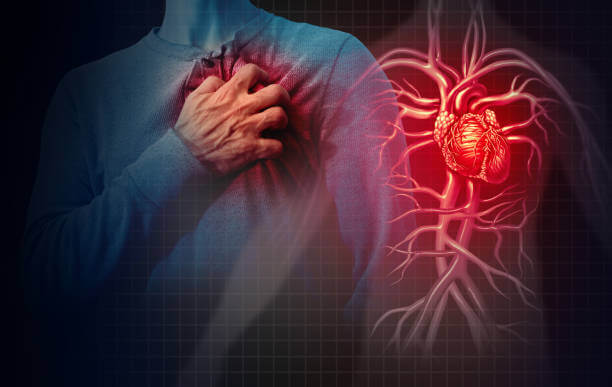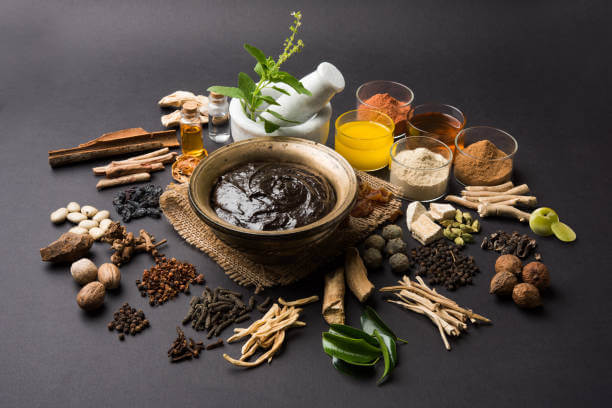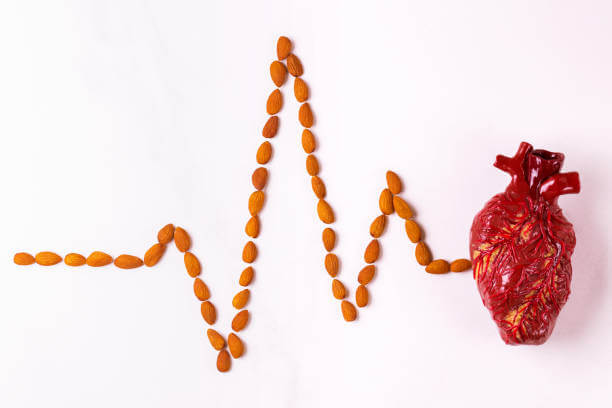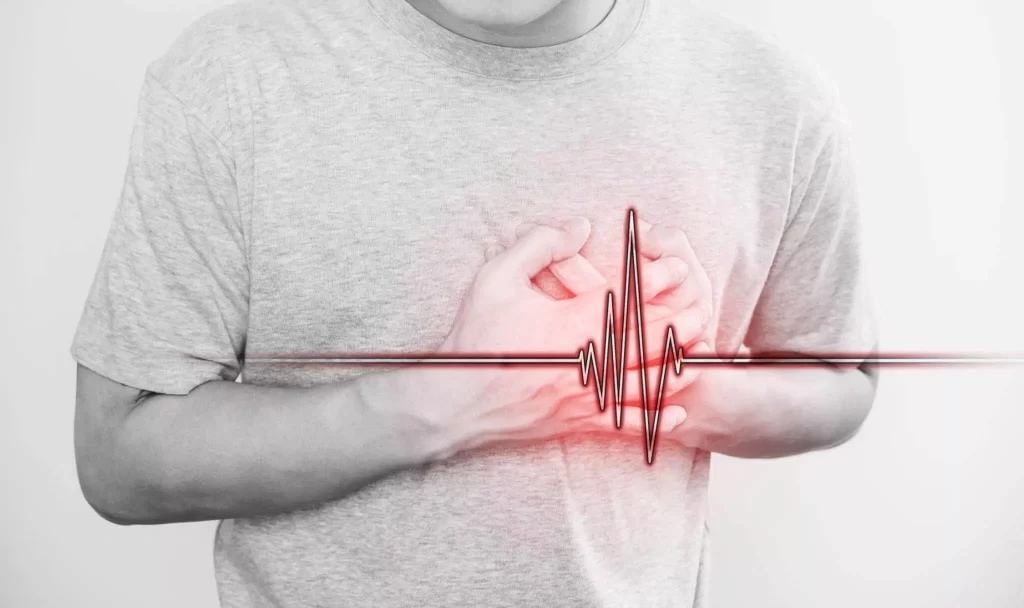Heart care
The Heart Attack: How to Recognize and Treat It
A heart attack can be a life-threatening event. Learn about the symptoms, causes, and treatment options for this serious condition.
- What is a heart attack?
A heart attack, also known as a myocardial infarction, occurs when the blood flow to the heart is blocked, usually by a blood clot. This can cause damage to the heart muscle and can be life-threatening.

- Symptoms of a heart attack
Symptoms of a heart attack can include chest pain or discomfort, shortness of breath, nausea or vomiting, lightheadedness or dizziness, and pain or discomfort in the arms, back, neck, jaw, or stomach. - Risk factors for a heart attack
Risk factors for a heart attack include high blood pressure, high cholesterol, smoking, diabetes, obesity, a family history of heart disease, and a sedentary lifestyle. - Prevention of a heart attack
Prevention of a heart attack includes maintaining a healthy lifestyle, such as eating a healthy diet, exercising regularly, not smoking, managing stress, and controlling any underlying medical conditions. - Treatment for a heart attack
Treatment for a heart attack includes emergency medical care, such as administering medications to dissolve blood clots, performing angioplasty or stenting to open blocked arteries, and providing oxygen therapy and other supportive care. - Recovery from a heart attack
Recovery from a heart attack can take time and may involve lifestyle changes, such as following a heart-healthy diet, exercising regularly, taking medications as prescribed, and attending cardiac rehabilitation. - Importance of seeking medical attention
It is important to seek medical attention immediately if you suspect you or someone else is having a heart attack. Early intervention can improve outcomes and save lives.
Causes of Heart Attack


- High Blood Pressure
- High blood pressure is one of the leading causes of heart attacks. When the blood pressure is consistently high, it puts a strain on the heart and arteries, leading to damage and increasing the risk of a heart attack.
- High Cholesterol
- High levels of cholesterol in the blood can lead to the buildup of plaque in the arteries, which can cause blockages and increase the risk of a heart attack.
- Smoking
- Smoking is a major risk factor for heart attacks. It damages the blood vessels and increases the risk of plaque buildup, leading to blockages and heart attacks.
- Diabetes
- Diabetes is a condition that affects the body’s ability to regulate blood sugar levels. High blood sugar levels can damage the blood vessels and increase the risk of heart attacks.
- Obesity
- Being overweight or obese can increase the risk of heart attacks. It puts a strain on the heart and increases the risk of high blood pressure, high cholesterol, and diabetes.
- Family History
- A family history of heart disease can increase the risk of heart attacks. Genetics can play a role in the development of heart disease, and those with a family history should take extra precautions to reduce their risk.
- Stress
- Chronic stress can increase the risk of heart attacks. It can lead to high blood pressure, inflammation, and other factors that can damage the heart and increase the risk of heart attacks.
Disadvantages of Heart Attack
- Damage to the heart muscle
- One of the most significant disadvantages of a heart attack is the damage it can cause to the heart muscle. The heart muscle may become weakened or scarred, which can lead to long-term complications such as heart failure.
- Risk of future heart attacks
Having a heart attack increases the risk of future heart attacks. This is because the underlying conditions that caused the heart attack, such as high blood pressure or high cholesterol, may still be present and need to be managed. - Reduced quality of life
A heart attack can have a significant impact on a person’s quality of life. They may experience fatigue, shortness of breath, and difficulty performing everyday activities. This can lead to feelings of depression and anxiety. - Financial burden
The cost of treating a heart attack can be significant, including hospitalization, medications, and follow-up care. This can create a financial burden for individuals and their families. - Lifestyle changes
After a heart attack, individuals may need to make significant lifestyle changes to reduce their risk of future heart problems. This can include changes to their diet, exercise routine, and medication regimen. - Emotional impact
A heart attack can be a traumatic experience, and individuals may experience a range of emotions such as fear, anxiety, and depression. This emotional impact can be long-lasting and may require support from healthcare professionals or loved ones. - Increased mortality risk
Unfortunately, a heart attack can be fatal. Even with prompt medical attention, some individuals may not survive the event. This highlights the importance of taking steps to prevent heart disease and manage risk factors.
Ayurvedic Treatment for Heart Attack


- Arjuna Bark
- Arjuna bark is a popular ayurvedic treatment for heart attacks. It contains antioxidants that help to reduce inflammation and improve heart function. It also helps to lower blood pressure and cholesterol levels, which are major risk factors for heart attack.
- Garlic
Garlic is another effective ayurvedic remedy for heart attacks. It contains compounds that help to lower blood pressure and cholesterol levels, which can reduce the risk of heart attack. Garlic also has anti-inflammatory properties that can help to reduce the risk of heart disease. - Turmeric
Turmeric is a powerful anti-inflammatory herb that has been used in Ayurvedic medicine for centuries. It contains a compound called curcumin, which has been shown to reduce inflammation and improve heart function. Turmeric also helps to lower cholesterol levels and prevent blood clots, which can reduce the risk of heart attack. - Ashwagandha
Ashwagandha is an adaptogenic herb that helps to reduce stress and anxiety, which are major risk factors for heart attacks. It also helps to lower blood pressure and cholesterol levels, which can reduce the risk of heart disease. Ashwagandha is also known to improve heart function and reduce the risk of heart attack. - Hawthorn
Hawthorn is a popular ayurvedic remedy for heart attacks. It contains compounds that help to improve heart function and reduce the risk of heart disease. Hawthorn also helps to lower blood pressure and cholesterol levels, which can reduce the risk of a heart attack. - Guggulu
Guggulu is a resin that is extracted from the Commiphora mukul tree. It has been used in Ayurvedic medicine for centuries to treat heart disease. Guggulu helps to lower cholesterol levels and prevent blood clots, which can reduce the risk of heart attack. It also has anti-inflammatory properties that can help to reduce the risk of heart disease. - Yoga and Meditation
Yoga and meditation are powerful ayurvedic practices that can help to reduce stress and anxiety, which are major risk factors for heart attacks. They also help to improve heart function and reduce the risk of heart disease. Yoga and meditation can also help to lower blood pressure and cholesterol levels, which can reduce the risk of heart attack.

